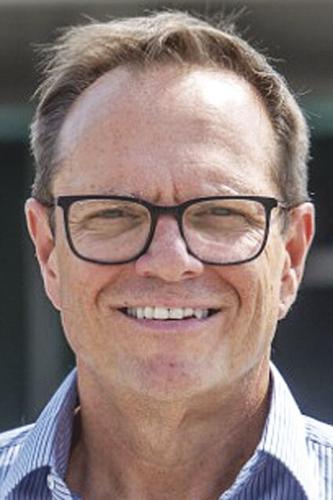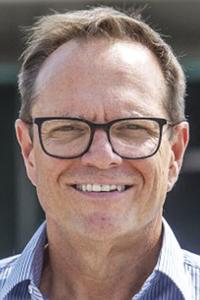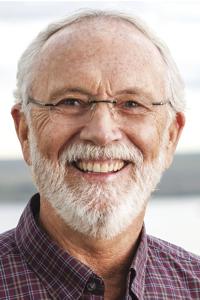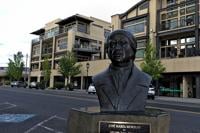Republican Dan Newhouse of Sunnyside is defending his U.S. House seat against Democrat Doug White of Yakima in the Nov. 8 general election.
The Yakima Herald-Republic asked each to talk about their views on health care:
Health care
Yakima’s only full-service hospital and trauma center reported $28.1 million in losses in the first two quarters of 2022, and the Yakima Valley’s other two hospitals, Astria facilities in Sunnyside and Toppenish, also reported first-quarter losses.
All three hospitals reflect the financial crisis facing health care providers throughout the state and nation, and local residents face additional barriers to care, including having to travel for a growing number of services.
What steps would you take in Congress to ensure Yakima Valley residents have access to health care?

Doug White
White: We've lost so many of our health care providers, health care workers. In fact, we have a flight of them outside of the district. We also have lower Medicare reimbursement rates than just about anywhere else in the state. So we have a lot of factors that are compounding this problem, but one of the biggest problems that we have is the fact that high value services, services that are important to the people in the community, have been shipped out of the community. Now people have to go to the west (side) in order to be able to receive a lot of services. I think this is one of the great losses of Congressional District 4 Central Washington and not being able to hold those services here in order to be able to both generate revenue and provide quality services to the people that need it.
I fundamentally believe that there are certain services that every community has to have in order to be able to be healthy and successful, and these should not be driven by corporate greed or any type of profit. These are just basic things such as services, police, fire, education, and health care. Right now, health care is the last one of all of these in the mix that is vital to the success of a community that is still driven by profit. We see the result of it. We get less and less care. We have an increasing difficulty maintaining health care providers or health care workers in this community. As a result, we're going to continue to see flight. We need to restructure our health care system, rethink how it is actually delivered, and start putting our communities ahead of profits.
I think insurance companies have far too big of a participation in our health care system, taking far too big of a chunk off the top. I think hospitals probably need to reevaluate their costing systems, and if this means that we need to realign some of our federal budgets in order to be able to prioritize health care over other things, that's something that could easily be looked at. One thing we do know is the federal government always spends all of our taxes. The other thing that we know is we don't always know what they spend it on, so we need to start forcing priorities, our priorities.

Dan Newhouse
Newhouse: (That’s) something that's really a huge issue for Central Washington and all rural areas, really, around the country. Access to care, distances, just logistically, it's difficult for a lot of people to get to the kind of care that should be available to them. That's something that I've been focused on, and a lot of the things that I've been working on are community health clinics. We've been working hard to make sure that they are strong and have the resources available to them that they need.
Our local medical school, as you know, its mission is to not only educate physicians, but also to encourage them to locate in rural areas. That's just a tremendous goal, and we're seeing that become a reality, attracting and keeping physicians after they’re trained.
With the pandemic COVID-19, we utilized in the health care system much more telehealth-type of contact between doctors and patients, and I've been working to strengthen that to make sure that system is able to continue even after the pandemic. I think that has helped bridge that gap.
Also, I’ve been a sponsor of legislation to improve the mortality rates with maternity issues for pregnant moms. Rural areas in the country have a much higher incidence of (maternal) mortality than urban areas, unfortunately, so helping to make sure that care and access is available to people living in rural areas is a huge priority of mine.
Are there ways to attract health care workers here?
Newhouse: One of the things I've been working on the last few years is to try to increase the number of residency slots in rural areas. There's a conclusion that if people train in rural areas, they're more apt to stay in those areas for their careers. To try to address the shortage of health care providers, I’m trying to increase the number of opportunities to fulfill those teaching obligations in rural communities.
That helps in a couple of ways. Not only do you get those individuals their training, hands-on experience in our local rural hospitals and clinics, but then the added benefit that they become part of the community. They develop associations and relationships and are more likely to stay.
White: I think that's kind of a 360-degree look. We need to be able to improve our communities on a number of different levels in order to make this a more attractive place to live. I happen to think this is one of the most wonderful places on earth to live. I’m born and raised here, I went away for a while, and I came back because this is my home and it is fantastic. I think other people will find that as well, provided we give them the opportunities, which is to give them a job and give them a wage that will support them.
One of the things that's becoming a challenge is the fact that the low wages that we're paying a lot of the health care workers here is way below what they can earn in other locations. In addition to that, because of the fact that many of our services have fled this district, there just aren’t jobs here for a wide range of different health care workers to make it exciting or interesting for them to work. We need to start bringing our services back. We need to be able to make sure that we're providing a competitive wage, and we need to start investing in our communities and our infrastructure so that everybody benefits.
Public safety
Yakama Nation and Yakima County law enforcement leaders recently sent a letter to federal officials requesting more public safety resources, including funding to support hiring more officers and support for a regional crime center. Violent crime, property crime, gangs and drug activity continue to rise in the county and on the reservation while both governments face resource shortages, the request said.
Do you support the proposal for a regional crime center in the Yakima Valley? Why or why not?
White: I absolutely do support the regional crime lab. I've been following this for quite some time and I've been able to have some good conversations with people that are very close to bringing it here. I think it is absolutely a benefit to the district. Right now, it takes months and sometimes years in order to be able to get information processed, and that's not acceptable. It even defies our Constitution guaranteeing a timely trial. Anything in order to expedite the process of getting people behind bars that need to be and getting sufficient services to those people that might otherwise have a good life and keeping them on that path, (I support).
Newhouse: As far as the regional crime center, I think anything that we can do to improve coordination, sharing of intelligence, the cooperative effort to solve crimes throughout the Valley and throughout Central Washington, it behooves us to do that. That will make all of our communities safer. We have to address the increasing crime issues, not only in Central Washington but throughout the country.
How would you go about addressing the crises of missing and murdered Indigenous people and other violence in the community?
Newhouse: This is exactly what I’ve been working on in Congress to address some of the issues that we have locally. From discussions and roundtables, we came up with the idea of improving the Parity for Tribal Law Enforcement Act between tribal agencies and local agencies to improve recruitment and retention of officers on reservation agencies. Not only can we train and keep high quality officers on reservations, they can then address some of the glaring issues that we have such as the MMIW issue, the drug issues, the gang issues, the crime issues that we're seeing, not only on reservations, but everywhere. If we can keep our tribal communities safer, in turn, we're going to keep all of our communities safer.
We also need to make sure that our law enforcement agencies have the tools necessary to do the hard job to keep our community safe. We need not only resources but the support to make sure that they continue to be held in high regard by communities. They need the physical and the vocal support of government officials throughout the country in order to be successful, and I want to make sure that they can do their jobs.
White: One of the biggest challenges right now is basically line drawing between sovereignty and local, state and federal jurisdictions on so many things. There seems to be a lack of desire to lend that help, step over that line when people ask, when people really need help. Everybody's so concerned about staying ring fenced right now.
Missing and murdered Indigenous people right now is probably one of the greatest tragedies facing us, and the fact that it's been going on for decades and it isn't isolated just to this district should tell the federal government and the state and local authorities, as well, that this isn't something where we can stand back and start disputing whether or not it's our problem, your problem, their problem. This should be an all-hands-on-deck effort in order to be able to do whatever we can, any way we can in order to solve this problem. So I would be stepping in to help see if I couldn’t mitigate some kind of solution to where all these organizations and entities could work together in a way that made them feel comfortable, but ultimately provided some results.

















(0) comments
Comments are now closed on this article.
Comments can only be made on article within the first 3 days of publication.